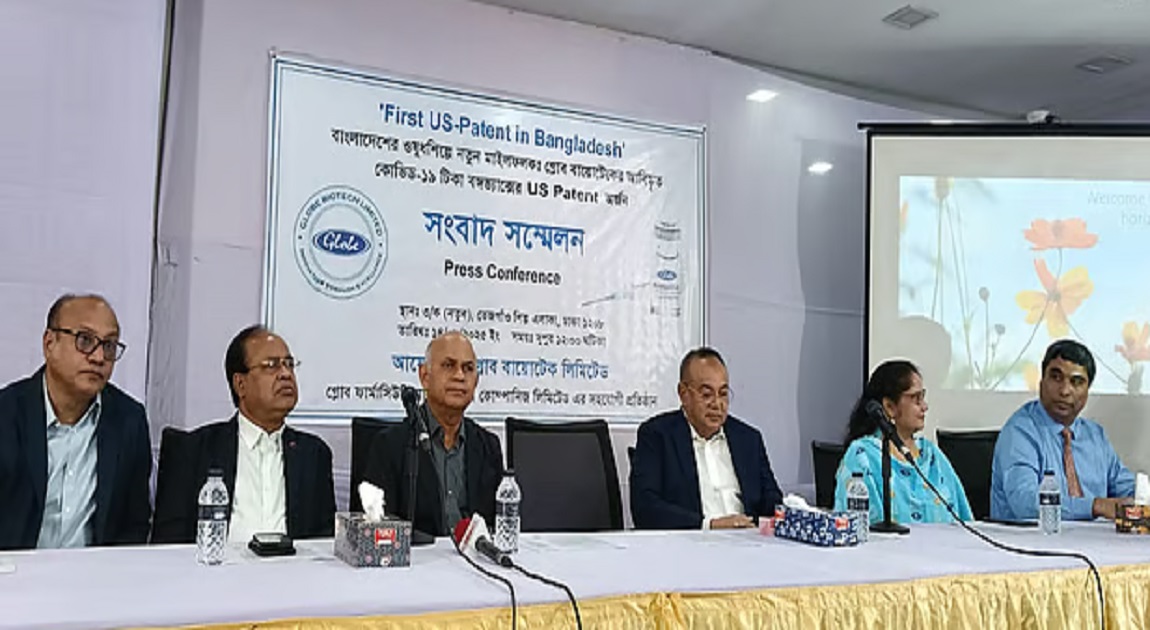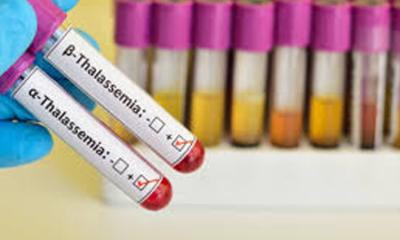Bangladeshi pharmaceutical company Globe Biotech has secured a US patent for its Covid-19 vaccine “Bangavax,” marking the first time in Bangladesh’s pharmaceutical history that such a patent has been awarded.
The announcement came at a press conference held on Sunday at the company’s Tejgaon Industrial Area office in Dhaka.
According to Globe Biotech, during the global Covid-19 crisis, when the world was reeling from the pandemic, the company’s scientists Kakon Nag and Nazneen Sultana began research to develop COVID-19 testing kits, vaccines, and therapeutics to meet national needs.
The mRNA-based Bangavax vaccine received clinical trial approval from the Bangladesh Medical Research Council (BMRC) and the Directorate General of Drug Administration (DGDA).
The complete coding sequence of the vaccine target was published in the US NCBI database in 2020. Later, Bangavax was highlighted in major scientific journals: Vaccine (Elsevier) and Scientific Reports (Nature Publishing Group, UK). The World Health Organization also listed Globe Biotech’s mRNA Covid-19 vaccine in 2020 in its official vaccine database.
The company says the vaccine has proven safe and effective in trials on monkeys — the first such trial for a vaccine in Bangladesh’s history. Globe Biotech, a sister concern of Globe Pharmaceuticals Group of Companies, began operations in 2015, aiming to produce biologics, novel drugs, and biosimilars to treat diseases such as cancer, arthritis, anemia, hypertension, and autoimmune disorders.
Globe Biotech describes Bangavax as a proprietary mRNA vaccine developed using its own nanotechnology-based platform. It is the world’s only single-dose Covid-19 vaccine claimed to be effective against multiple variants. The same technology could also be applied to produce other mRNA and novel vaccines, as well as cutting-edge drugs for diseases such as cancer and diabetes.
The company says the patent represents a milestone for Bangladesh’s fourth industrial revolution ambitions and public health goals. Using this patented technology, Bangladesh will be able to produce safe and effective vaccines domestically at lower costs, meet national demand, and export globally — earning both recognition and valuable foreign currency.
Globe Biotech adds that this breakthrough could help Bangladesh tackle challenges following its graduation from least-developed country (LDC) status in 2026 by creating a stronger pharmaceutical and vaccine production base.




-20260106082251.webp)

-20251231101531.webp)







-20260226080139.webp)






-20260225072312.webp)










-20260219054530.webp)
-20260224075258.webp)





-20260221022827.webp)